How to travel Europe on a backpacker's budget
Dreaming of a Europe trip? Here's my top tips for navigating the incredible continent of Europe, all while on a backpacker budget!
10min

Europe can be an intimidating area of the world for travelers to tackle.
With so many different countries jammed side by side, each with its own distinct language, culture, and way of life, it's hard to know the best way to travel through this fascinating continent.
The truth is, there is no "best" way to travel through Europe. Every country has its own set of unique traits, and every single one is worth visiting.
You can spend months and months in just one country, fully immersing in the culture and exploring different areas. You can embark on a grand tour, whizzing through tons of different nations while absorbing a little bit of each culture.
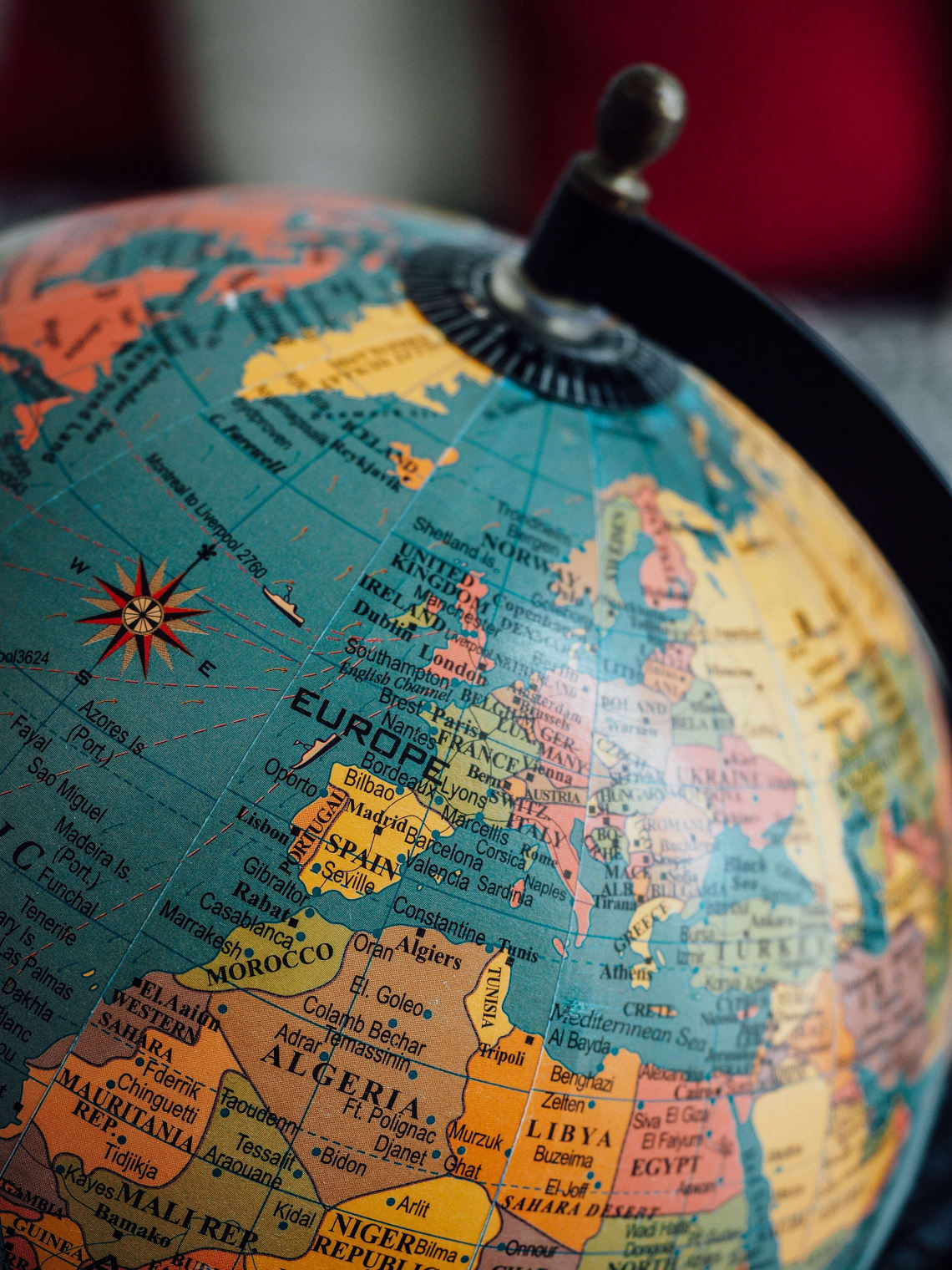
No matter how you choose to travel in Europe, it is always possible to do so on a budget. Young, eager travelers with limited funds can easily navigate this maze of countries without draining their bank accounts.
In order to keep your spending while abroad in Europe under control, follow a few steps before your trip as well as on the road.
Here are my top tips on how to save money when traveling to Europe and enjoy an epic European adventure while on a backpacker budget.
Also, don't miss out these tips on the cheapest way to get to Europe (and travel around).
How to travel Europe on a budget
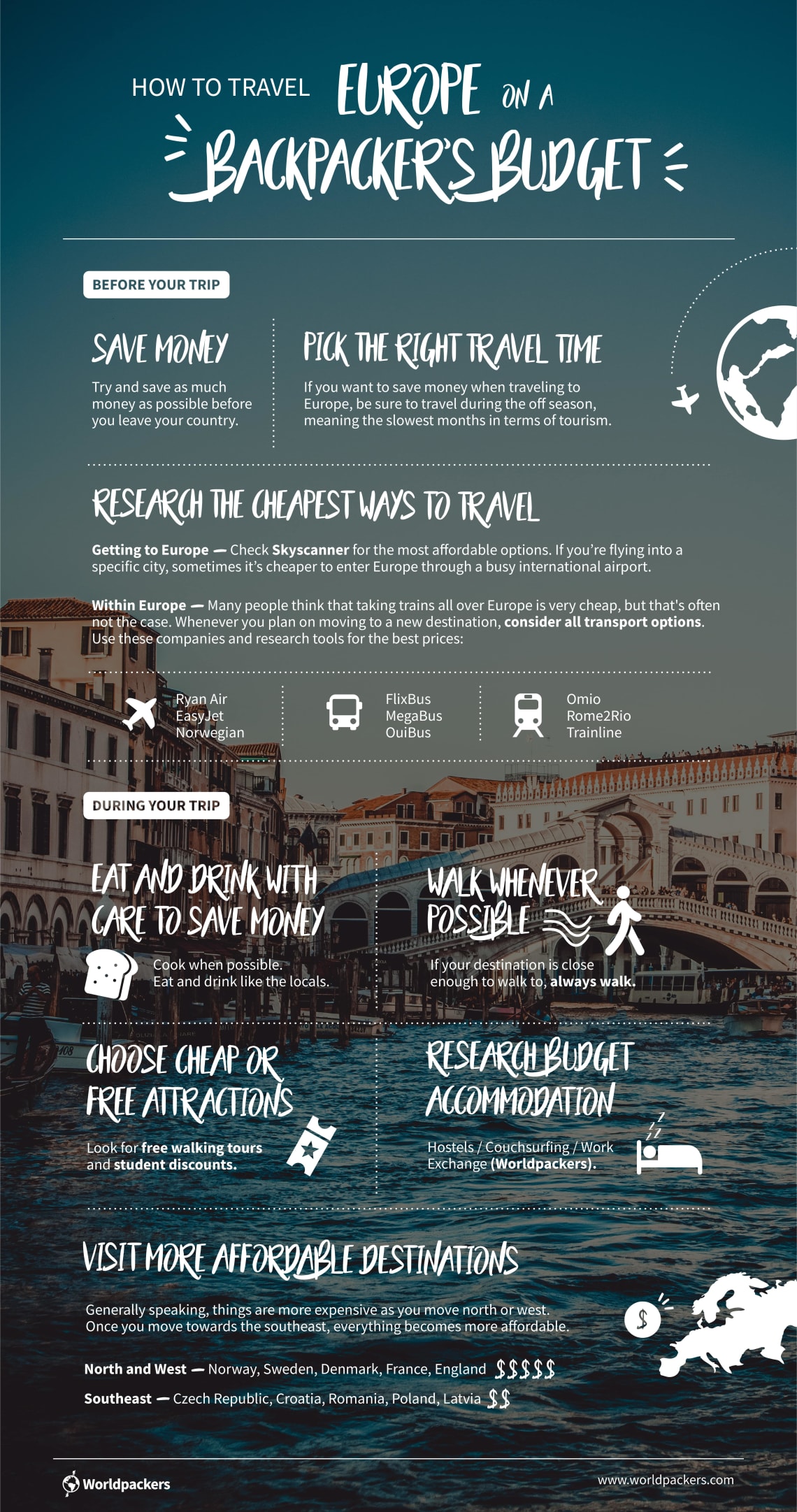
Before your trip
1. Save, save, save
If you are planning a trip through Europe, try and save as much money as possible before you leave your country.
Having a solid savings account will make you feel more comfortable while traveling, especially if you don't plan on working abroad. Always plan to have enough spending money, and maybe some extra emergency money in case something goes wrong.
Whether you need to work some extra shifts or cut down on spending at home, you'll be happy you made these financial choices once you make it overseas.

2. Pick the right travel time
Once you've saved enough money and begin sorting out the logistics of your travel to Europe, consider when is the best time to go. There’s a few factors that influence when you should visit Europe.
For budget travelers, cost is probably the most important factor. If you want to save money when traveling to Europe, be sure to travel during the off season, meaning the slowest months in terms of tourism.
The summer months are usually the busiest times in Europe because of the favorable weather, so flights will be very expensive during June, July, and August. The cheapest flights to Europe will be in December, January and February, as these winter months are colder and less desirable to tourists.
If you want a pleasant mix of affordable flights and decent weather, travel during the "shoulder season", meaning spring or autumn, the months caught in-between peak season and off season.
Obviously, traveling during the winter is not as comfortable as traveling during the summer. So it just depends which factor is more important to you. If you really want to save money, buy a winter coat and brave the cold. With a positive attitude, Europe is still gorgeous during off season, so don't let the weather prevent you from going.
Many countries become almost magical in the wintertime anyways. Think of skiing in the Alps, visiting Christmas markets in Germany, Austria, or Denmark, dog-sledding in Scandinavia, or visiting snowy villages in Transylvania. There is truly never a bad time to travel Europe, so research the flights that fit your budget best and make the most of your time.
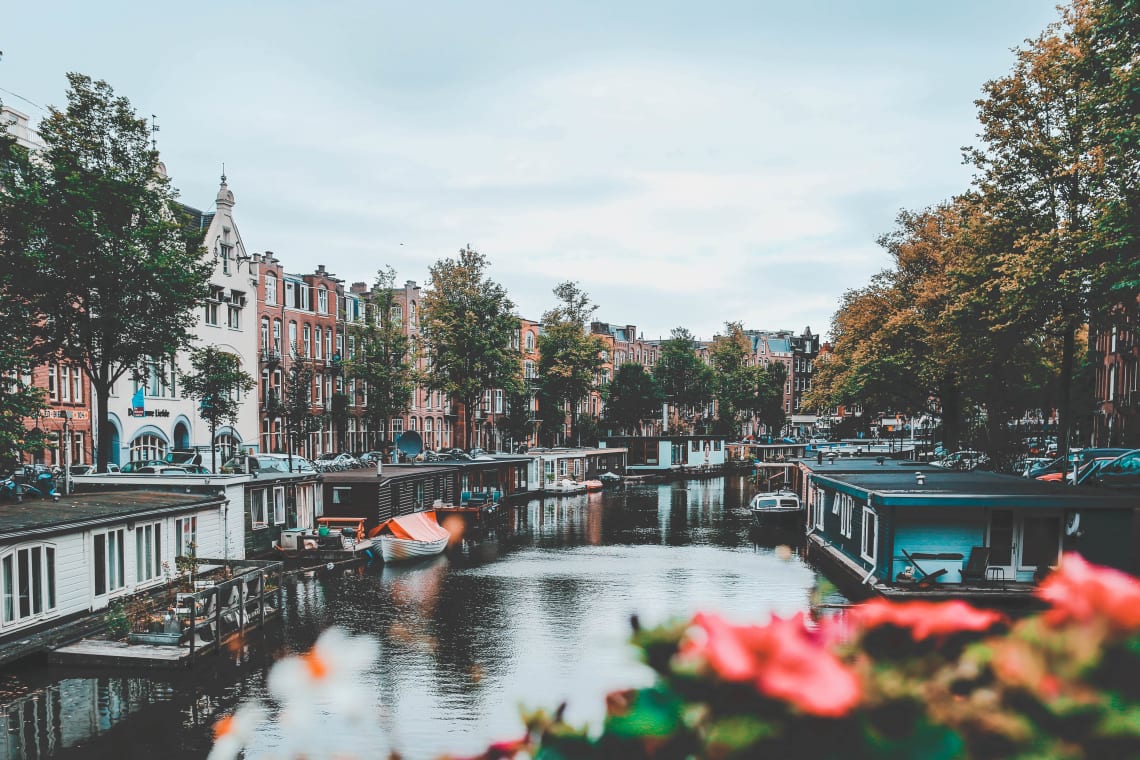
3. Research The Cheapest Ways To Travel Around Europe
Getting To Europe
With a little bit of web-surfing and research, you can easily find incredibly cheap flights to Europe.
Check Skyscanner for the most affordable options. With this website, you can select your departure airport, then select "cheapest month", as well as set the destination airport to "anywhere." This allows you to browse which dates and which airports will be the best for your budget.
If you're flying into a specific city, sometimes it's cheaper to enter Europe through a busy international airport, like London or Paris, and then take a connecting flight to your destination.
Just be flexible and open-minded when planning flights. With a bit of creativity, you'd be surprised at how cheap you can fly into Europe.
Within Europe
Once you buy your flights to Europe, start thinking about how you want to travel from country to country once you arrive.
You don't necessarily need to plan all your transportation ahead of time, but it helps to do a bit of research beforehand if you plan on visiting lots of different countries.
Many people think that taking trains all over Europe is very cheap, but that's often not the case. Whenever you plan on moving to a new destination, consider all transport options.
Airplane
Sometimes it's even cheaper to fly between countries than it is to take a train.
Europe is packed with cheap, budget airlines, like RyanAir, EasyJet, and Norwegian. Budget airlines often charge lots of money for baggage, however, since their flight prices are so low. So these airlines are best if you are only traveling with a carry-on.
But sometimes, you can find flights for under $10 USD, which is truly amazing.
Bus
Traveling by bus is another cheap option for traveling Europe.
FlixBus, MegaBus, and OuiBus are three reliable and affordable bus companies that travel to various destinations. For example, you can take MegaBus from London to Amsterdam or Brussels for only $20 USD, and OuiBus from London to Paris for a similar price.
The only downside of bus travel is that it takes longer than a train or plane. But if you have the time to spare, bus travel is often one of the cheapest options.
Train
Train travel is incredibly popular in Europe, though its affordability differs from country to country.
In the UK and western Europe, trains tend to be much more expensive than buses. But in eastern and southern Europe, trains can actually be very cheap.
You just need to research the train prices for each individual country, and websites like Omio (formerly GoEuro) and Rome2Rio are great for this. These sites compare train, bus, and flight prices between two destinations, so you can pick which option is the cheapest.
Another great resource is Trainline, Europe's leading train and coach app. Trainline works with 207 rail and coach companies and offers services to thousands of destinations in and across 45 countries in Europe. Trainline's aim is to bring together all rail, coach and other travel services into one experience so people can get the best prices and smart, real time travel info on the go.
Just be sure to consider all your travel options before hopping around Europe, and your wallet will thank you.

During your trip
1. Eat and drink with care to save money on food in Europe
Cook When Possible
Buying food and drinks is one of the biggest expenses while traveling. In Europe, with so many world-famous cuisines and wines and beers right at your fingertips, you must indulge in it all.
But you can do so carefully to avoid draining your funds too quickly. Start by shopping at the local food market, which almost every city in Europe has. Here you can find fresh produce for cooking and unique local goods, usually for decent prices. Try and cook more often than eating out, as you'll save so much money on food.
Eat like the locals
If you do dine out, stay away from the overpriced, touristy restaurants where the food is more generic. For higher quality, more traditional dishes than are most likely more affordable, so seek out authentic local restaurants.
These places will usually be hidden away, far from crowded tourist attractions and without a flashy sign out front. Ask locals where their favorite restaurant is, and you will certainly find a hidden gem for dinner.
Drink like the locals
A similar logic applies when drinking.
Try to buy alcohol at the liquor store, rather than buying individual drinks at a bar. You'll save tons of money, and you can still find local drink choices at the store. If you decide to splurge on drinks on a night out, drink what the locals drink. In Italy, Spain, and France, choose the local wine. In Germany, Czech Republic, or Belgium, try the favorite local beer.
Try Brennevin in Iceland, Vodka in Poland, Port in Portugal, Rakija in Croatia and Serbia. Just do as the locals do! The traditional alcohols are not only an insight to the culture, they are usually cheaper since there is a higher demand for them.
2. Walk whenever possible
If your destination is close enough to walk to, always walk. You get good exercise, you have more time to soak in the details of the world around you, and you don't need to spend any money.
Exploring a foreign city on foot is magical, though if you do need to pay for travel, try and take public transport rather than a taxi. Riding the local bus or tram is always cheaper than a taxi, and you can still interact with locals while you travel.
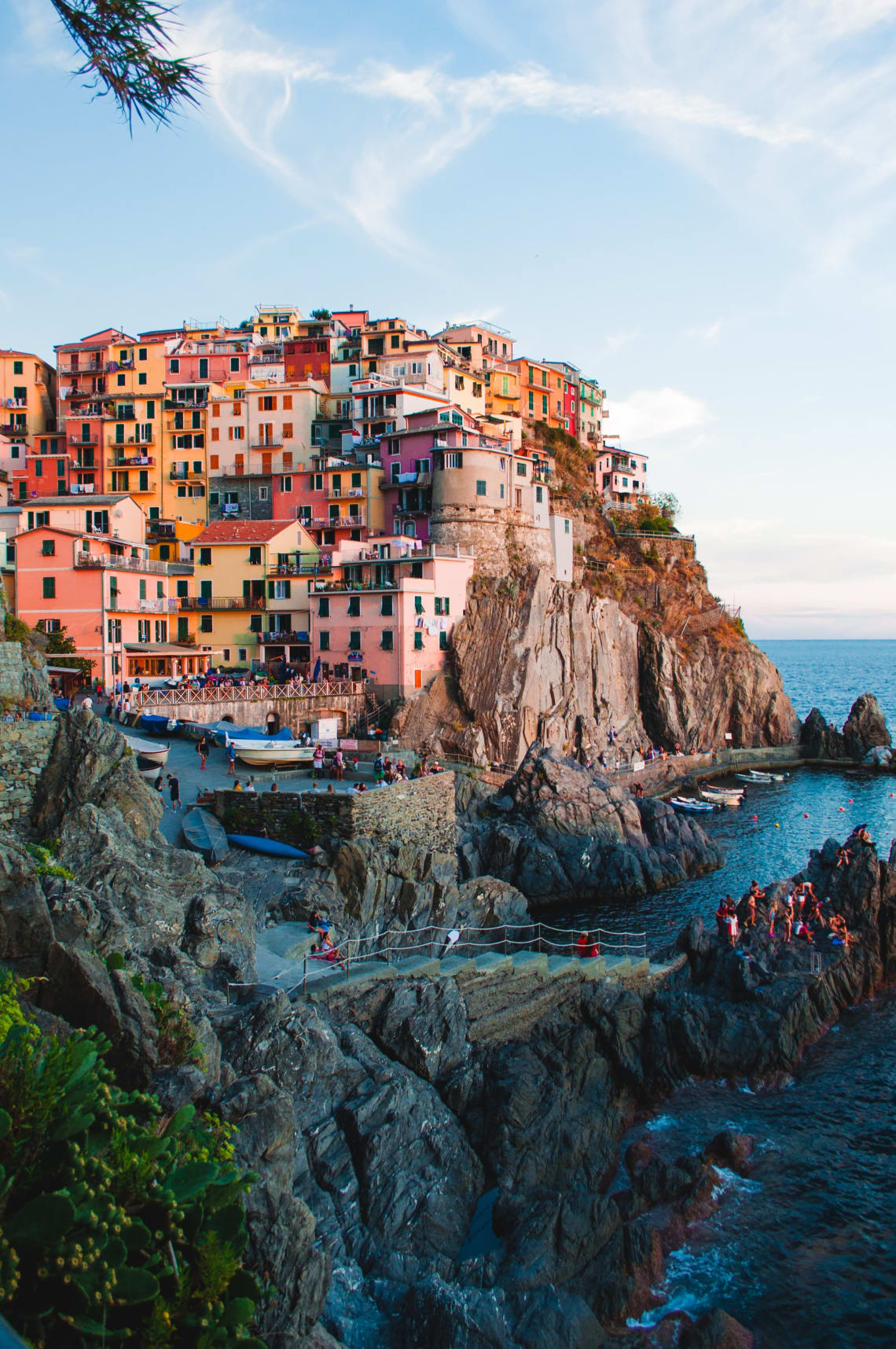
3. Choose cheap or free attractions
Touristy cities are full of attractions that cost money, sometimes too much money. Don't feel like you have to participate in every activity your guidebook recommends.
If an attraction genuinely sparks interest in you, definitely do it and know your money will be worth it. But don't pay to enter a museum or a gallery just because you feel like you should.
Always look up "Free Things To Do In..." to get some ideas on what to do for little money in a foreign country. Many cities have beautiful parks that are free to roam and picnic in. Many cities also offer free walking tours, and you should definitely take advantage of these. Check out Curiously Erin to learn more about the best free walking tours in Europe.
Locals usually run them, and you can learn just as much about the history and lifestyle of a city as you would in a museum. Also, if you have a student ID card, always carry it with you. Lots of attractions have student discounts, so you don't want to miss out on that.
Certain cities have their own cheap deals that benefit the wallets of travelers.
For example, every public museum is free in London, which is great considering London is an overall expensive city. So you can save plenty of money while learning about the history, art, and culture of London.
Also in lots of Italian cities, many famous attractions are free on the first Sunday of every month. This means you can visit the Colosseum and Roman Forum in Rome, or the Uffizi Gallery or Michaelangelo’s David in Florence, completely for free.
You just have to do a bit of research on the cities you are visiting and you may find some surprisingly cheap things to do while traveling Europe.
And of course, there are so many natural attractions that are totally free, like the best beaches in Europe and the best European destinations for nature lovers.
4. Research budget accommodation
Hostels
Another one of the biggest expenses while traveling is accommodation.
As tempting as it can be to stay in a luxury hotel, staying in a hostel is much more cost-efficient. Europe is packed with budget hostels that cater towards backpackers. You can find hostel dorm rooms for around $15 — $30 USD a night, and in cheaper cities in Eastern Europe hostels can cost under $10 a night.
Check HostelWorld and read the reviews for every hostel so you can see what other backpackers think of the place. Hostels are often centrally located, and they usually have comfy common areas where you can socialize with other travelers.
Couchsurfing
You can also try Couchsurfing to save even more money on accommodation. This online platform allows locals to offer their couches or spare beds to travelers for free. Again, always read reviews before agreeing to stay somewhere, and never stay somewhere that you don't feel comfortable.
Work Exchange
Another great way to save money on a place to sleep is to work in exchange for free accommodation with Worldpackers.
Many hostels, farms, and small local businesses will employ travelers to work for a few weeks, and in return they offer a free bed and sometimes free meals as well. A work exchange is a great way to immerse yourself in local culture, explore the area and build relationships with locals while saving money.
You can always browse Worldpackers hosts to find places that offer these types of work exchanges, and trust me, the Worldpackers opportunities in Europe are outstanding.
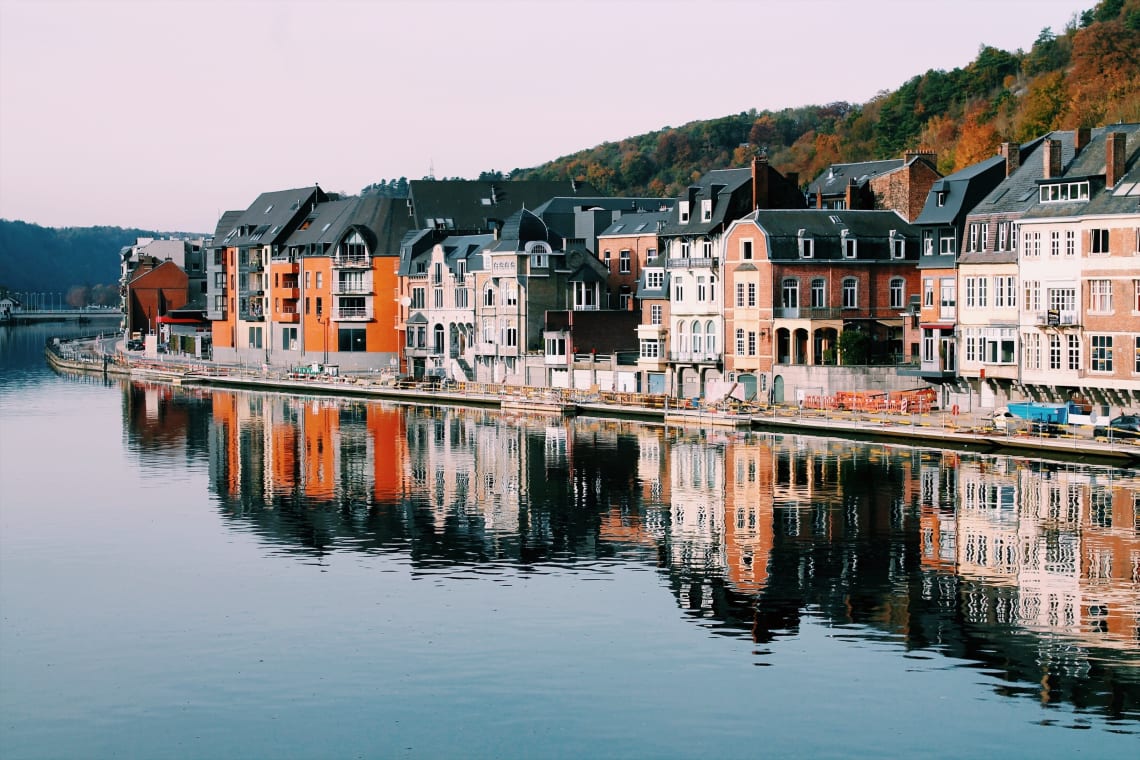
5. Visit more affordable European destinations
The cost of living in Europe varies in every direction, so be sure to research your destinations to ensure they fit your budget.
Generally speaking, things are more expensive as you move north or west. Scandinavia is notoriously expensive for food, accommodation, and attractions, as are cities like London and Paris. However, Portugal is cheaper than most of its western neighbors, and of course you can find budget options in some of these more expensive places.
But once you move towards the southeast, everything becomes more affordable. A beer in the Czech Republic can cost about $1 USD. A hostel in Croatia can cost $6 USD a night, and a full meal in Romania can cost about $5 USD. If you want to explore on the cheap, south-eastern Europe is definitely the most affordable area to be in.
The beautiful thing about Europe is that the destinations are seemingly endless. Within every area of the continent is a cluster of countries with unique landscapes and cultures. Within every country lies many cities and villages just waiting to be explored.
Some places in Europe get more attention than others, but don't let this stop you from venturing to the lesser-known countries and cities.
Of course the popular cities, like Barcelona, Paris, Prague, Athens, Budapest, Lisbon, Madrid, and Venice are stunning and are definitely worth visiting. But there are plenty of other cities that offer similar experiences and charm, with less tourists. And the farther away from the touristy spots you go, the more affordable everything becomes.
Try visiting Warsaw, Poland for a quaint Old Town full of history. Visit Riga, Latvia for amazing architecture and Sofia, Bulgaria for hearty food and friendly locals, and explore the mountains of Albania - one of Europe's hidden gems. Venture away from the cities to the hidden small towns of Portugal, Spain, and Italy to find authentic local traditions.
Europe is quite literally, packed to the brim with gorgeous places and amazing experiences waiting to happen.
Always travel with an open mind, and don’t let money interfere with any of your travel goals.
By following these tips, being prepared, and traveling intelligently, any country in Europe can be budget-friendly.
This article might interest you:












Untuck
Sep 22, 2023
The best way to experience seamless travel through breathtaking landscapes is Gothenburg to Oslo train route.
https://untuckworld.com/gothenburg-to-oslo-train/
Mourad
Jun 19, 2024
❤️❤️❤️
عبدو
Jun 21, 2024
Yes